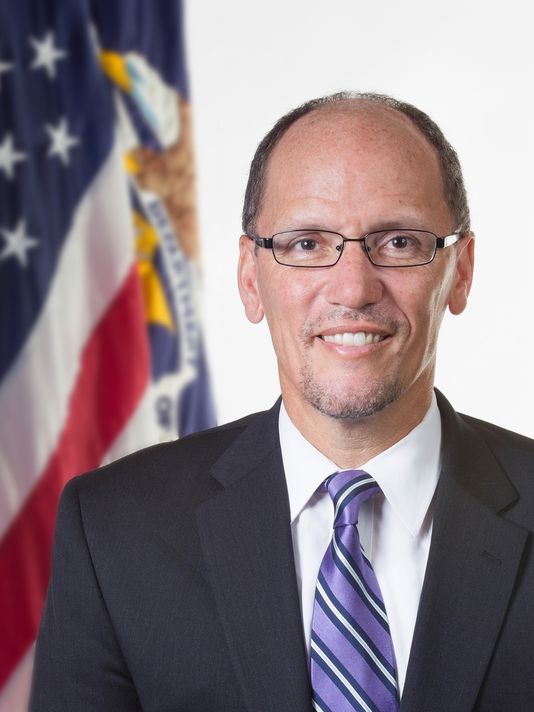
Bonus column: Living day by day on minimum wage

(Photo: Special to
By Thomas E. Perez 11:09 p.m. CDT August 31, 2014
The Register)
30 CONNECT 13 TWEETLINKEDIN 11 COMMENT EMAIL MORE
It used to be that you could support a family on a minimum wage salary. Today, a minimum wage worker has to make a choice every day: buy a gallon of milk for the kids, or buy a gallon of gas to get to work.
The current national minimum wage, frozen at $7.25 per hour since 2009, simply hasn’t kept up with inflation. As a matter of fact, its purchasing power has declined by one-third since the 1960s, and it’s worth less today than it was in 1981. Bus fare has certainly gone up since 1981. Same with the price of a dozen eggs or a week of child care. Landlords aren’t sending out rent decreases. And yet the value of the minimum wage is eroding.
It’s time to raise the minimum wage to $10.10 per hour, which would make a difference in the lives of 28 million people.
President Obama first asked Congress last year to increase the minimum wage, but that call has fallen on deaf ears. Fortunately, people around the country aren’t waiting. A national movement, drawing its strength from grass roots energy, is inspiring states, local governments and forward-looking businesses to show leadership where Congress hasn’t.
Thirteen states plus the District of Columbia have passed new laws increasing their state minimum wages over the last year and a half. More than seven million workers total will benefit from those increases.
In Iowa, the minimum wage has held steady with the national minimum wage of $7.25 per hour for more than five years. A poll conducted earlier this year by The Des Moines Register shows that nearly two-thirds of state residents support raising the minimum wage. Sen. Tom Harkin is a lead author of legislation to gradually raise the national minimum wage to $10.10 per hour. More than 332,000 Iowa workers would see a much-need boost in their take home pay if Congress agreed to Senator Harkin’s proposal.
A higher minimum wage is pro-business as well as pro-worker. Employers large and small, debunking the conventional wisdom, have embraced a higher minimum wage and acted on their own to raise their employees’ pay. From national brands like Costco and the Gap, to the Ace Hardware store just a mile away from my office, companies are giving their workers a raise not just because it’s the right thing to do, but also the smart thing to do for the bottom line. It improves morale, productivity and customer service; it reduces absenteeism, turnover and training costs.
Besides, many employers believe that the people who make or sell their products ought to make enough money to buy them. In an economy driven by consumer demand, what any business needs most are customers. When working families have more money in their pockets, they pump it right back into the economy. They spend it on goods and services in their communities — and that helps businesses grow, which creates more jobs.
In addition to asking Congress to act, President Obama is doing what he can to help more workers get a raise. He signed an executive order, which we at the Labor Department are in the process of implementing, to increase the minimum wage to $10.10 per hour for private sector workers on federal contracts. It’s hard to argue against our rationale: if you serve meals to our troops for a living, you shouldn’t have to go on food stamps in order to serve a meal to your family at home.
As we celebrate Labor Day, the holiday that honors the working men and women who contribute to the strength and prosperity of our nation, let’s honor them in a real and meaningful way: let’s give them a raise.
THE AUTHOR:
THOMAS E. PEREZ is the U.S. secretary of labor.
